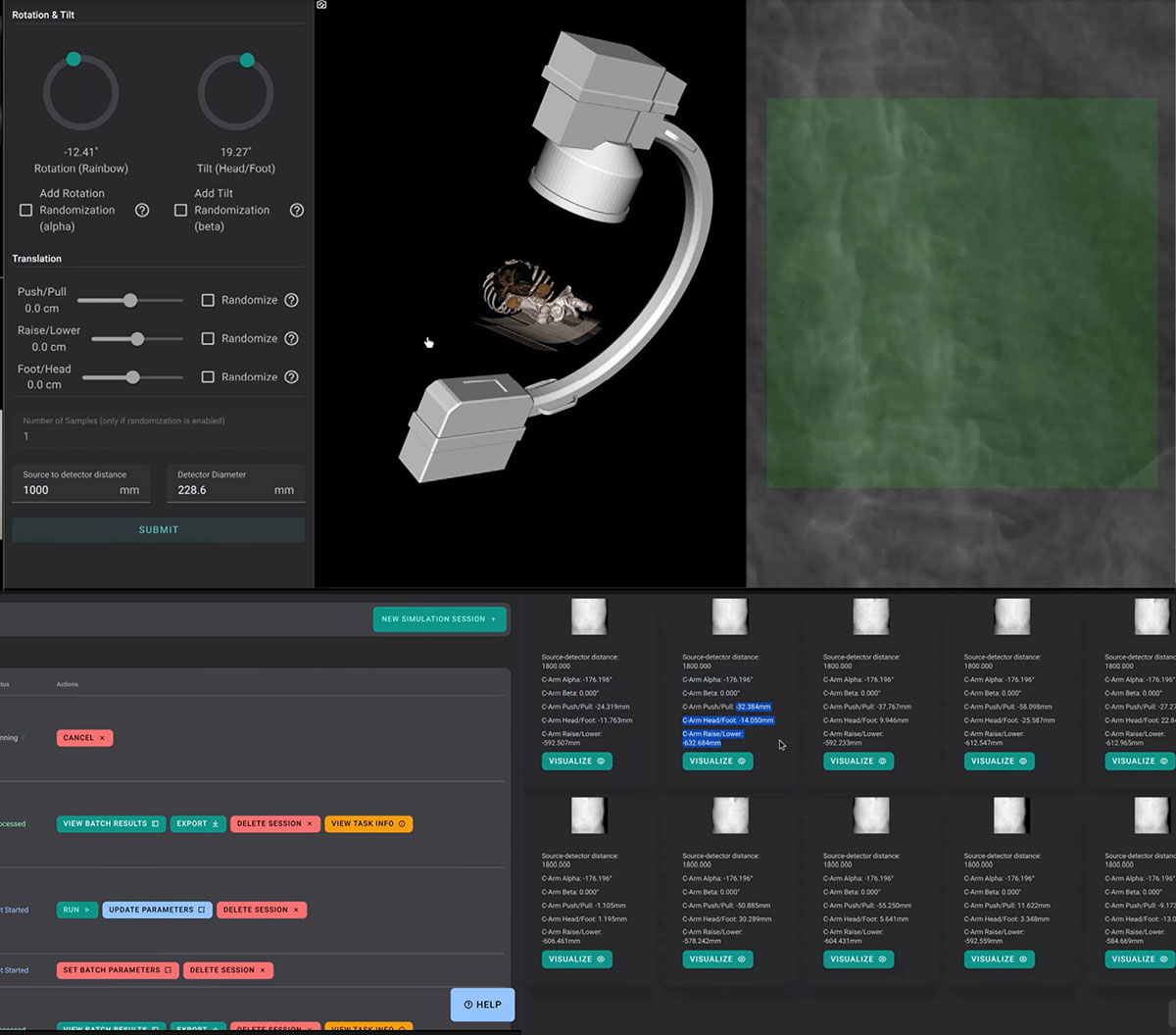How Synthetic X-rays are Advancing Medical Imaging AI

Training robust AI models for medical imaging requires access to large volumes of high-quality, well-annotated data. But in many clinical domains—especially interventional and minimally invasive procedures—real X-ray data is difficult to obtain. Patient privacy concerns, data storage costs, radiation exposure risks, and inconsistent labeling practices often limit the availability and utility of clinical datasets.
A Smarter Way to Simulate X-ray Imaging
Developed by Kitware, X-ray Genius is a powerful new tool for generating realistic synthetic X-ray and fluoroscopic images at scale. Designed for flexibility and ease of use, it enables researchers, educators, and medical device developers to create clinically relevant imaging scenarios without the need for real patient exposure. Whether you’re teaching C-arm operation, training AI models for needle trajectory planning, or optimizing intraoperative imaging techniques, X-ray Genius provides a safe, scalable, and cost-effective solution to generate the imaging data you need.
Enhancing AI Training with Rich, Labeled Datasets
One of the platform’s key strengths is its ability to generate diverse, labeled datasets tailored for AI development. For example, in procedures like vertebroplasty or bone biopsy, synthetic X-rays can be used to simulate different needle paths, helping AI learn how to recommend the safest and most effective trajectories. Similarly, for orthopedic trauma cases, it can generate training data for AI systems that recommend optimal C-arm positioning—helping reduce radiation exposure and improve workflow efficiency in the operating room.
Flexible Architecture, Streamlined Workflows
What sets X-ray Genius apart isn’t just the quality of the images it produces but the flexibility of its architecture. Users can choose between a fully managed cloud deployment or a local workstation setup, and the platform offers a streamlined, intuitive interface for manipulating scan parameters and managing simulations. It also supports structured workflows, session tracking, and data provenance—making it ideal for both individual researchers and large collaborative teams.
Watch the Webinar & Get in Touch
In our recent webinar, Kitware’s Andinet Enquobahrie and David Allemang gave a live demo, in-depth use case examples, and a behind-the-scenes look at the platform’s architecture and roadmap. Click here to watch it for free. If you would like to meet with the creators of X-Ray Genius and discuss how you can apply the technology to your work, please contact our team.